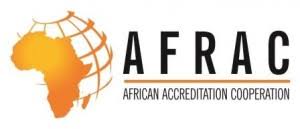
ACCREDITATION PURPOSE AND ISSUES
ISO IEC 17000 defines accreditation as third-party attestation related to a conformity assessment body conveying formal demonstration
of its competence to carry out specific conformity assessment tasks.
In summary, the accreditation allows to demonstrate the technical competence of a Conformity Assessment Body (CAB), including laboratories, inspection bodies and certification bodies.
Ensure the competence of CABs is important for several reasons. :
In trade, certification is now recognized internationally as one of the most reliable forms of evidence to demonstrate that the traded products meet quality standards and sanitary and phytosanitary requirements;
• Other sectors such as health, rely on the competence of CABs, sanctioned by an accreditation, as a prerequisite for entry elements in the administration of care, to name but a few. ;
• The regulator is the natural customer of accreditation since he/she is issuing technical regulations. To make decisions, which, when they are not implemented, may result in more or less serious penalties, it should be based on CABs whose competence is guaranteed by accreditation.
Ultimately, the accreditation is as a tool used by the regulator involved in ensuring the health and safety of populations.







